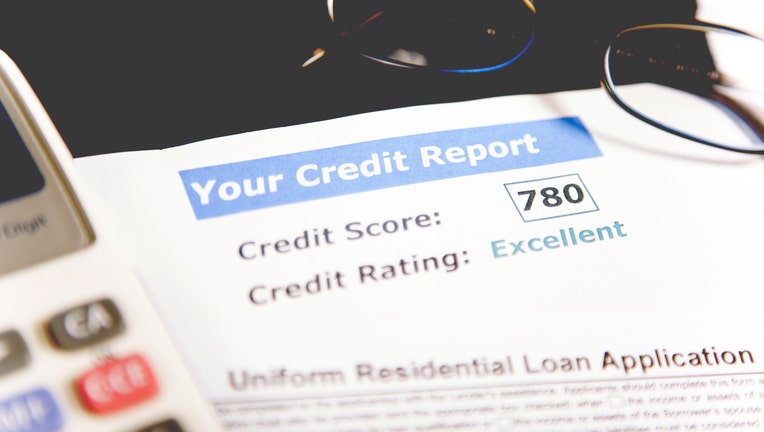Does refinancing your mortgage lower your credit score?

Refinancing your mortgage may temporarily lower your credit score, but the benefits far outweigh the drawbacks, and there are ways to maintain a good credit score through your refinance. (iStock)
Refinancing your mortgage can be a great way to lower your monthly payments and save money on interest. Mortgage refinancing has been a particularly attractive option over the past year, when interest rates have been at historic lows. Even in the second half of March, the average rate on a mortgage loan was 2.875%, significantly lower than at the same time last year.
And while refinancing your mortgage comes with some financial advantages, there are some downsides. For example, home loan refinancing is likely to lower your credit score because it is a hard inquiry and the new account on your report.
How refinancing affects your credit score will vary quite a bit, depending on your current credit situation. There are also ways to strategically manage the impact and maintain a healthy credit score.
If you'd like to get a preview of what refinance rates you'd qualify, head over to the Credible marketplace, where you can compare multiple mortgage lenders and loan rates all at once without affecting your credit score.
IS A 15 OR 30-YEAR MORTGAGE REFINANCE BETTER WITH TODAY’S RATES?
What happens to your credit score when you refinance?
When you refinance your mortgage, you’re likely to see a temporary drop in your credit score. There are a handful of reasons that contribute to this.
First, refinancing your mortgage results in a hard inquiry on your credit report. Though this doesn’t usually result in a substantial drop — it may only be a few points — it is something to consider.
Refinancing your mortgage also impacts your length of credit history. First, you’re eliminating a longer-standing account by closing your existing home loan. At the same time, you’re opening a brand-new account with your refinance loan. Those two factors together bring down your average age of credit, which can lower your credit score.
A cash-out refinance could have a more substantial impact on your credit score since you’re decreasing your home equity amount. As a result, you increase your credit utilization, potentially decreasing your credit score. It might be worth it, though, especially if you’re using a cash-out refinance to pay off other high-interest debt.
You can visit an online marketplace like Credible to see your refinance rates and decide whether a cash-out refinance is worth it.
TOP 5 MORTGAGE REFINANCE QUESTIONS ANSWERED
How to protect your credit score while refinancing
There’s no doubt that a home loan refinance will have a slight impact on your credit score. The good news is that there are steps you can take to protect your credit before, during and after the mortgage refinance process.
1. Focusing on boosting your score before refinancing. One of the most important factors in determining the refinance rate you qualify for is your credit score. You'll get a lower interest rate if your credit score is high. If you know you’ll be refinancing soon, focus on increasing your credit score to get the best rate. To ensure you're staying up-to-date with your credit status, enroll in a credit monitoring service. Credible can help you get started.
2. Focus on one large purchase at a time. Hard inquiries or new accounts on your credit report can hurt your credit score. Shopping around for another type of loan or line of credit at the same time you’re shopping for a mortgage refinance could result in multiple inquiries on your credit and hurt your chances for lower interest rates. You can use a tool like Credible to get prequalified on your mortgage refinance, which does a soft credit check and doesn’t impact your credit score.
6 WAYS TO IMPROVE YOUR ODDS OF GETTING A LOW MORTGAGE REFINANCE RATE
3. Shop around for refinance rates all at once. Hard inquiries have a slight impact on your credit score. Luckily, credit bureaus understand that people shop around to get the best rate. Multiple inquiries of the same type in a short period of time show up on your report as a single inquiry, meaning they don’t impact your credit as much as many hard inquiries would. The best practice is to make all of your inquiries in a 14-45 day period. Again, consider visiting a site like Credible, where you can get prequalified for multiple mortgage refinance rates without impacting your credit score.
4. Be diligent about making your mortgage payments. Your payment history is the most important factor in determining your credit score. That means the best way to get your score back up after refinancing is to make your monthly payments on time.
HOW TO KNOW IF MORTGAGE REFINANCING IS FOR YOU, ACCORDING TO EXPERTS
The bottom line
Refinancing your mortgage is likely to have an impact on your credit score. But it can also have financial benefits that far outweigh that, such as lowering your mortgage payment and interest rate and saving you money in the long-run.
To start the loan refinance process or get your mortgage questions answered, visit Credible to get in touch with experienced loan officers.
4 THINGS TO KNOW BEFORE REFINANCING YOUR MORTGAGE
Have a finance-related question, but don't know who to ask? Email The Credible Money Expert at moneyexpert@credible.com and your question might be answered by Credible in our Money Expert column.

